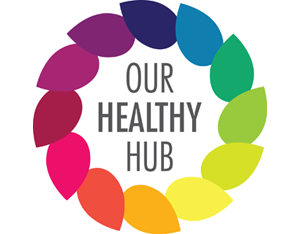Hello again,
I’d like to talk to you today about something that some people struggle to limit whether they exercise or not. That something is alcohol! I personally don’t know that many people who don’t drink alcohol at all, only Deano really. In my late teens, I drunk quite a bit on weekends. Looking back now, I don’t completely regret it. I just think I’m glad that stage of my life is now over. Nowadays I limit my drinking of alcohol to social events like Weddings and Birthdays and a couple of beers on a Friday and a Saturday night. That’s only two days out of seven so I’m happy with that. As my wife is currently pregnant (due tomorrow!) and because of the physical events I’ve been doing lately, the last beer I touched was 4 weeks ago. This is the longest I’ve gone without any alcohol for a while and I’ll probably go another week or until at least the baby is born. I know I could still have the odd beer but I wanted to go a full month as it’s been a while since I did that. I’ve found it pretty easy to be honest, although with the hot weather at the moment I really fancied one at the weekend while having a BBQ! If you think you or your loved one is drinking too much, checkout this great link ‘signs that someone is abusing alcohol.’ Thanks.
That’s my introduction to exercise and alcohol, now I’d just like to make a few points about what affects alcohol has on you while you exercise. For starters the average pint of beer has 250 calories and a glass of wine has around 130. You can see by these figures that half an hour in the gym maybe equates to a couple of pints so the weight you think you’re losing, you may not be. The way alcohol is absorbed by the body can also reduce the amount of fat you’re able to burn by exercising. Alcohol also gets in the way when our bodies try to absorb all the essential nutrients we need.
My weekly 5k’s are a brilliant example to look at. I burn around 400 calories per run. So one run doesn’t even cover 2 pints of beer. As the run is at 9am on a Saturday morning, running with a bad head is not a very good idea either. Fitness experts agree that to get the most out of cardiovascular exercise such as running, you have to put in the physical effort. This may mean you think you’re working much harder than you really are.
The majority of the human body is composed of water and when you don’t have enough water in our bodies, dehydration occurs. Alcohol is a diuretic, which means it causes a greater loss of fluids than gains when you drink it. Alcohol also increases urination, which in turn makes you lose more water. For more information, checkout Deano’s article on The Importance of Hydration.
If you feel like the balance between alcohol and exercise is not working for you, then it’s a good idea to consider cutting down. I still enjoy a drink and maintain a healthy lifestyle. I find the key is sticking to the daily unit guidelines. These advise that men should not regularly exceed 3-4 units (equivalent to a pint and a half of 4% beer) and that women should not regularly exceed 2-3 units (equivalent to a 175ml glass of 13% wine). Of course there are other benefits of reducing your alcohol intake, things like reducing the risk of developing heart disease, cancer and liver problems. I recently wrote an article called How Smoking Affects Health & Fitness, I didn’t want to just state the obvious but rather point out the affects these kind of things have on exercise. Why wouldn’t you want to get the best results possible when exercising? Even if you’re looking to reduce your stress levels, look your best or just lose weight, then reducing your alcohol intake will help you.
Stay fit and healthy folks,














An obvious article but very well written. Thanks for highlighting this with us, all the best Stan.